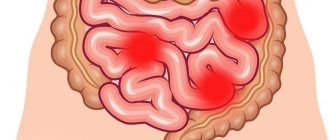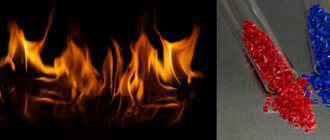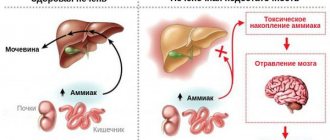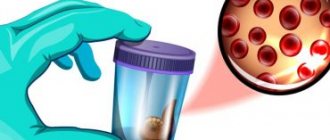Heartburn is an unpleasant symptom that you want to get rid of quickly. After all, eating and feeling full should bring pleasure and relaxation, not torment. Let's find out what medications can help with heartburn.
Heartburn occurs when acidic stomach contents enter the esophagus. The esophageal mucosa is not adapted to such an environment and an unpleasant burning sensation occurs. In the course of life, this condition can happen to anyone through overeating, bending over after eating, or in women during pregnancy. With prolonged symptoms, the esophagus may suffer, erosions, ulcers may develop, and scar tissue may form, which will lead to a narrowing of the lumen. Cell degeneration and the development of neoplasms may occur.
Heartburn and related symptoms
The general clinical picture will help determine a preliminary diagnosis and conduct only the necessary studies.
Heartburn 15-20 minutes after eating is the result of dietary errors or stomach diseases. After eating, an “acid pocket” forms in the upper part of the stomach; from this reservoir, the contents flow back into the esophagus. With hyperacid gastritis, heartburn is accompanied by sharp pain in the epigastrium. With hypoacid gastritis, the pain is dull, often combined with constipation and bloating.
Heartburn before or at the beginning of a meal is gastroesophageal reflux.
Heartburn with bile indicates pathology of the liver and gallbladder. A burning sensation in the esophagus occurs 30 minutes to 2 hours after eating, driving or cycling and is accompanied by heaviness/pain in the right hypochondrium.
Heartburn after a course of antibiotics - a violation of the microflora (dysbacteriosis) provokes increased gas formation and an increase in intra-abdominal pressure.
Heartburn and bitterness in the mouth in the morning are the result of overeating at night, following a strict diet for weight loss, and eating “provoking” foods.
Heartburn and diarrhea (diarrhea) are signs of an inflammatory process in the gastrointestinal tract. Body temperature often rises.
Heartburn and bloating - consumption of coarse fiber, overeating, dysbiosis, chronic constipation, intolerance to dairy products.
Cough with heartburn - GERD, smoker's bronchitis.
Heartburn, nausea and vomiting - gastritis, ulcers and erosions of the stomach, side effects of medication. drugs, stomach cancer.
Heartburn, dizziness and weakness - gastrointestinal disease is combined with anemia/hypotension. The sudden appearance of painful symptoms may indicate a hypertensive crisis or developing myocardial infarction. Antacids don't help.
Heartburn and belching - occurs when eating avidly, talking while eating, or a hiatal hernia.
Classification
Taking into account the predominant localization of discomfort, a distinction is made between the more common heartburn in the chest and the less common form with a burning sensation in the throat. To determine the severity of a symptom, the frequency and circumstances of its development, intensity, connection with food intake, and other features of the discomfort experienced are usually used. This approach is effective for conducting a diagnostic search and selecting optimal methods for correcting heartburn, taking into account the causes of its occurrence. Based on the proposed criteria, three degrees of severity of the disorder are distinguished:
- Mild heartburn
. A retrosternal burning sensation appears no more than once a month, is usually provoked by dietary errors, and quickly goes away on its own after correcting the diet. May be accompanied by belching of air or acidic stomach contents. It is observed in 51.4% of men and 48.5% of women without chronic pathology of the digestive organs. - Moderate (moderate) heartburn
. Disturbs the patient 1 to 3 times weekly. It is observed after eating both irritating and familiar foods to the patient. It is often detected as part of a dyspeptic syndrome with nausea, sour or putrid belching. Usually indicates the development of gastroenterological pathology. - Severe (severe) heartburn
. It appears almost every day, combined with belching, nausea, sometimes vomiting, stool instability, and abdominal pain. Often associated with food, although it may occur on an empty stomach. Urgent diagnosis is necessary to determine the disease that caused the symptom. Found in 1.2% of men and 3.4% of women.
Heartburn in pregnant women
Heartburn bothers 30-50% of pregnant women. In the absence of organic damage to the digestive tract, burning along the esophagus (functional heartburn) is caused by hormonally caused relaxation of the lower esophageal sphincter, increased pressure in the abdominal cavity and displacement of the stomach due to an increase in the size of the uterus. However, it is possible that the expectant mother develops a gastrointestinal disease or that an existing pathology has worsened.
Typically, heartburn first appears in the 20th week of pregnancy and torments the woman until childbirth. A common myth is that burning sensation in the esophagus is caused by hair growth on the fetal head. Expectant mothers should take care of proper nutrition and daily routine, and not believe in prejudices.
Pregnant women are not recommended to take antacid medications on their own. First, some medications can negatively affect the fetus. Secondly, it is extremely undesirable to trigger a serious illness. Malabsorption of nutrients can lead to fetal malnutrition and other abnormalities.
Important! Functional heartburn does not harm the unborn baby. The first step to getting rid of a burning sensation in the esophagus is maintaining proper nutrition.
Features of treatment of Barrett's esophagus with nocturnal hypersecretion of gastric juice
Barrett's esophagus is a critical condition because changes in the esophageal mucosa can progress to adenocarcinoma. Effective control of hypersecretion of gastric juice can stop the progression of the disease and prevent malignant neoplasms. Therefore, effective 24-hour gastric acid suppression is critical for this group of patients. Unfortunately, in patients with scleroderma and esophagitis, it is possible to control acidity only in 50% of cases.
Removing acid from the esophagus is a two-step process involving volume reduction and acid neutralization. During this process, most of the acid is removed from the esophagus during primary and secondary peristalsis, the influence of bicarbonates secreted by the salivary and submucosal glands of the esophagus.
Normally, acid clearance decreases during sleep. At night, swallowing practically stops, and therefore there is no stimulation of primary peristalsis. Due to the low food content in the stomach, secondary peristalsis is practically not stimulated.
Based on experimental studies, it is assumed that secondary peristalsis in patients with GERD and the elderly is not affected by the same conditions as in healthy people. Acid clearance of the esophagus in patients at night is worse than during the day, not only because of the supine position, but also because of the lack of swallowing and the reduced content of bicarbonate in saliva, which neutralizes acid.
Nocturnal acid secretion can be especially harmful due to prolonged contact of the acid with the mucous membrane. Nocturnal hypersecretion of gastric acid is common in patients with severe reflux effects such as erosive esophagitis and Barrett's esophagus.
Barrett's esophagus
The nocturnal symptoms of GERD are influenced not only by a decrease in peristaltic activity, but also by a violation of the lower pressure in the esophagus and increased sensitivity of the esophageal mucosa.
When monitoring pH daily in patients with symptoms of nocturnal reflux, the most common cause of problems was moderate acidity (pH 4-7), pepsin and bile in the reflux.
Heartburn in children
In addition to problems with the digestive tract and dietary errors, heartburn in children can be caused by completely non-trivial reasons:
- neurological pathology,
- scoliosis,
- cystic fibrosis,
- ENT pathology,
- lung diseases.
In most children, heartburn is not as severe as in adults. However, unpleasant sensations cause discomfort to babies. Infants arch their backs, often burp, release gases and are capricious. At the same time, even with the slightest nutritional disorder in children, pain comes to the fore. Even slight bloating causes regularly recurring attacks of intestinal colic, and heartburn often leads to vomiting and refusal to eat. This can lead to insufficient weight gain, and uncontrollable vomiting quickly leads to dehydration.
Tips for parents for heartburn in children
- After feeding, the baby should be held upright for a while.
- If you have heartburn, first of all you should analyze your diet and diet, exclude all foods that cause heartburn (including limiting carbohydrates).
- Don't delay visiting the pediatrician. Against the background of prolonged heartburn and indigestion, anemia, apnea, and wheezing in the lungs may develop.
Important! It is necessary to exclude congenital anomalies of the digestive sphincter, intolerance to milk proteins and celiac disease.
What to eat or drink for heartburn
pexabay
It is logical that this is a food that reduces stomach acidity.
We have compiled a list of 12 products, including in your diet that will help you forget about heartburn and discomfort after eating.
- Bananas
- They have weak acidity. Hearty and great for snacking.
- Oatmeal
- Diet oatmeal is the best breakfast option! You can even eat it with sour berries; oatmeal perfectly extinguishes their acidity. Reduces irritation of the mucous membrane due to its enveloping effect.
- Melon
- Honeydew melon, like bananas, has low acidity. Can replace an entire meal
- Fennel and parsley
- An excellent addition to meat and vegetable dishes, it reduces acidity and has great benefits for the gastrointestinal tract.
- Chicken and turkey
- The main dietary meat dish. Grilled, steamed, stewed or baked. Just give up skin that has a lot of fat
- Fish and seafood
- The benefits of fish and seafood have long been known. In addition, these products are preferable for heartburn. Same cooking recommendations. However, it is worth choosing wild, low-fat fish rather than farmed fish.
- Root vegetables and greens
- Beets, asparagus, broccoli, greens - almost all root vegetables are recommended for dietary nutrition
- Couscous and rice
- These grains, especially brown rice, are complex carbohydrates and are great for preventing heartburn.
- Aloe vera
- Unexpectedly, we recommend including it in your diet. It is a healing agent. The plant can be used, can be purchased in liquid form
- Ginger is one of the best foods for high acidity. Can be used for cooking, can be brewed into tea.
Heartburn due to coronavirus
With COVID-19, painful gastrointestinal symptoms, including heartburn, are caused by several factors.
- The coronavirus enters the gastrointestinal tract and provokes functional changes.
- Patients experience significant stress during their illness.
- With COVID-19, chronic diseases often worsen, and in our country up to 85% have problems with the gastrointestinal tract.
- Due to the frequent gastrointestinal symptoms, the “delta” strain of coronavirus has already been called “stomach covid.”
Important! Heartburn with coronavirus, especially in combination with severe weakness, increasing shortness of breath and worsening cough, may indicate a severe course of the disease.
Recent studies have shown that over the next year, patients who have recovered from COVID-19 have a significantly increased risk of developing diabetes mellitus, autoimmune gastrointestinal diseases and psychosomatic disorders, including gastric ulcers. Therefore, if heartburn occurs, patients recovered from coronavirus should visit a gastroenterologist.
Important! Information has appeared in the press that the heartburn drug Famotidine improves the well-being of patients with coronavirus. However, only 10 people participated in the study, and therefore it is premature to talk about the effectiveness of this drug and its safety against COVID-19. We strongly advise against taking Famotidine on your own without a doctor’s prescription.
Nocturnal hypersecretion of gastric juice - why is it dangerous?
GERD is the most common disease of the esophagus, accompanied by heartburn, including attacks at night. For example, according to surveys, in the United States, 7% of the total population suffers from heartburn every day, and 14% suffer from heartburn less than once a week.
Shaker's study found that nocturnal symptoms of heartburn occur in most adults with heartburn:
- 79% of respondents say they feel heartburn at night;
- 75% of them say their symptoms affect their sleep quality;
- 63% believe that heartburn negatively affects the quality of sleep;
- 40% of respondents indicate a negative impact of the symptom on activity.
Of the 791 respondents who suffered from heartburn, only 41% used antisecretory drugs, and in only 49% of patients the drugs were effective in relieving symptoms.
Proximal migration of acid is thought to predispose to symptoms of GREB at night. Therefore, pathology can lead to damage to the upper respiratory tract and the appearance of respiratory diseases - pharyngitis, laryngitis, chronic bronchitis, bronchial asthma, sinusitis, chronic cough, hoarseness.
Chronical bronchitis
Diagnosis of heartburn
Recommended Laboratory Tests
- General blood analysis.
- Biochemistry and liver tests.
- Test for antibodies to Helicobacter pylori.
- Coprogram.
Instrumental studies
- Urease breath test for Helicobacter.
- FGDS with the possibility of taking a biopsy (to exclude cancer).
- Ultrasound, X-ray with contrast agent and CT.
- Esophageal pH monitoring, esophageal manometry.
If necessary, the patient is referred to an endocrinologist, pulmonologist, cardiologist and other highly specialized specialists.
Treatment of heartburn
- Correction of the diet - do not overeat (especially at night), the last meal is 2.5-3 hours before bedtime, the interval between meals is 4-5 hours, the portions are small.
- Eliminate from the diet all foods that cause heartburn - fatty, fried, spicy, citrus fruits, coffee, alcohol, fresh vegetables and fruits, avoid chewing gum (increases the secretion of gastric juice).
- Allowed dishes: soups, boiled lean meat and fish, porridge (oatmeal, rice, buckwheat), yoghurt, milk (low-fat sour cream, ice cream, cottage cheese in limited quantities), baked apples, boiled vegetables.
- Sleep hygiene is to sleep on your left side with the head of the bed raised. Elevating your upper body by 15% will reduce your risk of heartburn by 50%.
- Symptomatic therapy - before meals, take drugs that neutralize acid (antacids, alginates). It should be remembered that some of them (for example, Almagel) are not recommended for children, and the duration of their use is limited.
- Correction of high gastric acidity and treatment of GERD - proton pump inhibitors.
- Improving the motor function of the gastrointestinal tract - prokinetics (required as prescribed by a doctor; they have serious side effects).
- Antibacterial therapy - when Helicobacter is detected, two or three antibiotics are combined.
- Means for improving digestion - enzymatic preparations.
- General strengthening therapy - vitamins, probiotics.
- Surgical treatment - for severe GERD, gastric ulcers that are refractory to drug therapy.
Drugs for the treatment of heartburn and the underlying disease are selected on an individual basis. Not a single, even the most effective drug will help get rid of heartburn without following a diet.
Features of the treatment of GREB with nocturnal hypersecretion of gastric juice
GERD is treated with antisecretory drugs. In the presence of endoscopic signs of GERD, treatment is more effective than when diagnosing non-erosive GERD. In case of ineffective treatment of non-erosive GERD, it is necessary to consider whether the patient is taking medications properly, whether the dose and duration of treatment are sufficient.
If non-erosive GERD is not treated effectively, other conditions should be considered. Often found:
- Functional dyspepsia. With this pathology, antisecretory therapy can relieve symptoms, but not enough.
- Regurgitation in patients with atrial syndrome, which may be associated with impaired peristalsis or lower function of the esophagus.
- Aerophagia.
- Achalasia.
- Eosinophilic esophagitis.
After endoscopic confirmation of GERD, and if there is no therapeutic response, it is necessary to determine whether the patient is taking the drug or dose correctly and check the duration of use, since resistance to PPIs is rare. Resistance is possible mainly due to a genetic mutation in the cytochrome system.
Preventing heartburn
- Eliminate heavy lifting.
- Sleep at least 7 hours.
- Do not bend over or go to bed for 1.5-2 hours after eating.
- Avoid corsets, bandages and tight trousers.
- Quit smoking, don't abuse alcohol.
- Get rid of extra pounds.
- Don't skip preventive examinations.
- When the first complaints appear, consult a doctor.
- If you have gastrointestinal diseases, visit a gastroenterologist 2 times a year.
- Control of emotional state, help from a psychologist.
Taking into account the increasing number of cancers, which at the initial stage manifest themselves with minimal symptoms, recurrent or constant heartburn cannot be ignored. Contact the First Family Clinic of St. Petersburg. You will undergo the necessary studies, and gastroenterologists will prescribe effective treatment.








